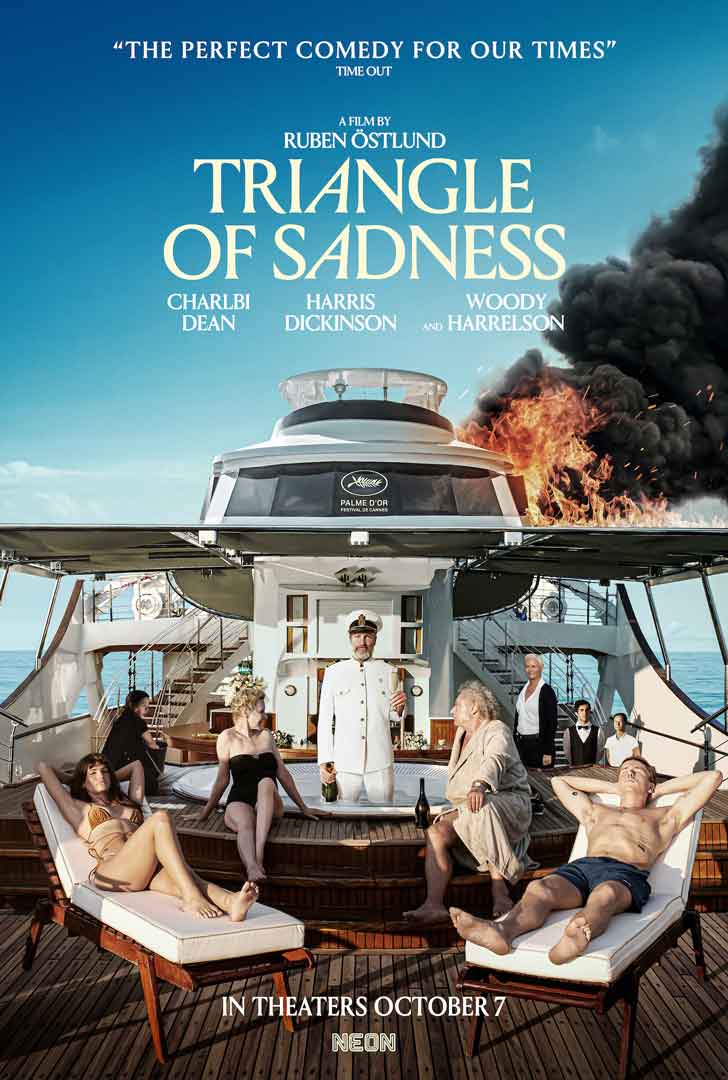Ruben Östlund loves to take the piss. The Swedish chief has made a propensity for it in his movies, conveying blistering parodies of relational peculiarities (Power Majeure) or the assumptions of the workmanship world (The Square). This time, the successful enfant horrendous of European film focuses on the rich and the favored, however maybe not in a remarkable way you would think; his 6th film is as much a ridiculous parody as it is a singing prosecution.

The film is separated into three unmistakable sections. The principal act lays out an extremely current supermodel power couple, Carl (Harris Dickinson) and Yaya (Charlbi Senior member, unfortunately her last film job), and Östlund’s content takes pleasure in making fun of the fatuousness and status tensions of the style world. (It’s here that the film gets its title — got from a term projecting specialists use to portray a three-sided region of the face probably generally inclined to wrinkles.)

Then, in the film’s center segment, the couple set forth for an outing on an extravagance yacht, welcomed there for their powerhouse clout: new cash, diverged from old cash. The Insta-powerhouses hobnob with privileged Brits who graciously make sense of their privately-run company is in weapons of mass obliteration, in addition to a slobbering Russian oligarch (delightfully played by Croatian-Danish entertainer Zlatko Burić — an oligarch subject matter expert) who made his fortune in squander the board, oneself portrayed “lord of crap”.

At last, when everything goes awry for the boat, the third demonstration turns into its own thing completely, and the film transforms into an assessment of what happens when business as usual of force, class and cash is recalibrated. All through, Östlund’s filmmaking is pointed, practically snide, and probably as unobtrusive as a gold-encrusted demo hammer; there’s nothing either tactful or enchanting about these bourgeoisie. In any case, it is certainly conveyed and charmingly introduced, an energetically convincing uproar of ostentatiousness. It’s practically similar to watching a nature narrative: you can’t resist the urge to be interested and repulsed by these peculiar, outsider animals.

The festival of overabundance is undeniably arranged with massive promptness — never more so than in the focal, 15-minute set-piece of the film. It starts with a chief’s supper of the sea’s most unappetising fish during a turbulent evening; it closes with essentially every one of the travelers succumbing to savage disorder and the runs, recorded with the sort of express dirty firecrackers that would make Monty Python’s Mr Creosote become flushed. No producer has at any point before portrayed the ignominious demonstration of emerging at-both-closes with such sickening clarity.

As the walkouts at its Cannes debut would recommend, this is arthouse parody at its generally adolescent; filthily fun as they are, successions like that have probably as much profundity as a latrine bowl. Be that as it may, it is unreasonably charming a ride to mind excessively: as the cost for many everyday items emergency develops and a downturn lingers, there’s something intensely soothing in watching the guts of rich individuals being purged out for our pleasure.

Leave a Reply